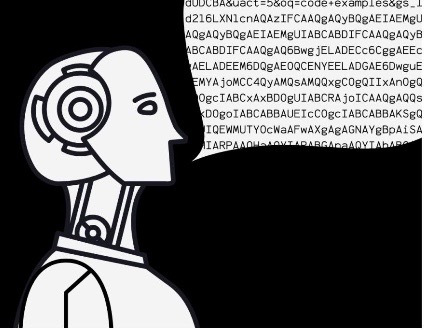Banning artificial intelligence in schools
As AI continues to rapidly develop, programs like ChatGPT are approached with caution.
February 9, 2023
Artificial intelligence, or AI, has been taking the technological world by storm with the advancements that have been made in past years. Most recently, an AI system called ChatGPT from OpenAI, an artificial intelligence research laboratory, allows users to simply type in a short writing prompt, and an AI generator will create an entire story in a few minutes. This development has led to a variation of opinion, with some feeling that this tool allows for too much possibility of malicious use, such as cheating in school systems. Others feel that the creation of this tool will be beneficial to writers, students and professionals, as it will allow them to gather ideas and input that will aid in the flow of their writing. Given the differentiation in opinion over the issue across the board, some universities and workplaces have been inputting rules that prohibit the use of ChatGPT and other AI software.
Open ChatGPT was released in November 2022 and has since been the topic of conversation in universities and businesses. The New York City Department of Education took the step of blocking the system from all networks and devices within school districts. Public school systems in both Seattle and Los Angeles followed suit soon after.
In an “Insider” article titled, “Here are the schools and colleges that have banned the use of Chat GPT over plagiarism and misinformation fears,” by Beatrice Nolan, the Los Angeles School District justified their ban on the system due to concerns about protecting “academic honesty.” The article also further investigated the issue of plagiarism through OpenAI within universities.
“The technology has also unnerved some universities around the world,” Nolan said. “Professors have said that students are already trying to pass off AI-generated content as their own. One of France’s top universities, Sciences Po, banned the use of ChatGPT and other AI tools last week. The university said students caught flouting the new rules could be thrown out, per Reuters.”
At GC, the system has yet to be prohibited, and some professors feel that the software is an asset that should remain available to students. GC photography professor, Seth Cook, shared his feelings on the potential possibilities that come with utilizing ChatGPT, and the ways that he implements the software into his personal creative process.
“As a visual artist, I find Open AI as a helpful resource for starting my projects,” Cook said. “When I am struggling with finding inspiration, Open AI gives me a place to start in finding project suggestions or assists me in planning a project schedule. I view these suggestions as just a starting point, not a final solution. Using Open AI speeds up the process, but I only recommend it to my advanced students who understand it is a tool and not a substitute for their creativity.”
While Cook stated his interest in and admiration of the AI program, he also emphasized his feelings that ChatGPT should be used as a stepping stone rather than a final destination.
“I view Open AI with caution, as it is easy to rely on too much. In visual art, it can be useful as a tool for generating ideas, like making a mind map or seeking advice from friends. However, it should not be relied upon as the sole source of inspiration. I would only see it that way if it meant aiding a student in laying out their project foundation.”
ChatGPT has also attracted the interest of GC students that study within majors that require large amounts of writing or creative energy. Hannah Conti, a senior art major, shared her experience with the AI program and how she feels it could lead to an outlet for plagiarism.
“In the right context, it can be used as a tool, but I do think people might take advantage of that,” Conti said. “It can be beneficial for brainstorming or looking for a different angle or word choice. I do see a high probability of people using it for plagiarizing. I can see how that can jeopardize jobs in multiple ways.”
Another concern that has been expressed with the creation of this system is the risk that it may begin to take job opportunities away from those in the communication industry. Davis Forney, a senior mass communications major, shares his feelings about those speculations.
“If we are given a tool that takes some of the workload off of what we do most, writing, then it leads us to think more about the actual message we want to send,” Forney said. “I do not see Chat GPT taking jobs. If anything, understanding and utilizing it will become important, just like Adobe or Microsoft. AI art and storytelling are definitely going to muddle the creative market for a while, even harm some people’s artistic pursuits, but at the end of the day, stories and art people create will be valued higher.”
Everyone must choose for themselves their feelings on the lucrative possibilities of ChatGPT and the advancements of AI. While some professional establishments may decide to utilize the system within their work, others may choose to keep their writing done purely through the method of the human hand. Advancements will continue to be made as years progress, as technology shows no signs of slowing down in progression.







